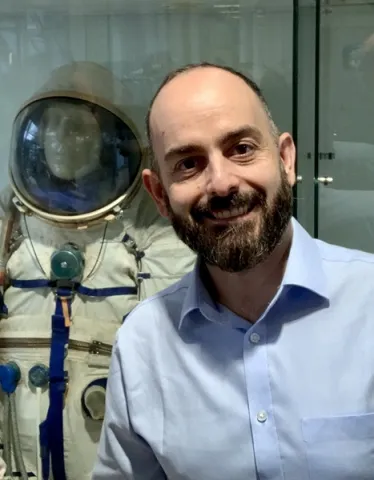About the project
Modern lightweight space structures face harsh environments and often exhibit nonlinear dynamics due to contacts, friction, and geometric nonlinearities. This project combines numerical, analytical, and experimental methods to develop physics-informed machine learning tools for efficient nonlinear system identification, enabling accurate modelling and validation of the next-generation space technologies.
Modern space systems, from spacecraft components to precision sensors, operate in extreme and hostile environments. To meet stringent performance demands while minimising payload mass, ultra-lightweight high-performance structures are increasingly employed in space missions. Although such advanced structures offer exceptional capabilities, they often exhibit nonlinear dynamic behaviours which cannot be captured by employing classical linear models. Such behaviours arise from geometric nonlinearities, friction, contact, and complex damping mechanisms, all of which critically impact the performance, stability, and reliability of space structures. In this context, developing novel tools for the analysis, identification, and prediction of the dynamics of nonlinear systems is essential for designing, testing, and validating the next generation of space technologies.
This project will combine numerical modelling, advanced analytical techniques, and experimental methods to develop a novel approach for the identification of nonlinear systems. Specifically, this project aims to:
- develop a novel nonlinear system identification method based on physics-informed machine learning approaches, capable of producing computationally efficient reduced-order models and enabling accurate, efficient modelling of complex space structures
- investigate the accuracy and extrapolation capabilities of the identified reduced-order models, identifying pros and cons of the proposed approach
- validate theoretical and numerical results through state-of-the-art experimental facilities
This project is ideal for those passionate about space engineering, nonlinear dynamics, and aerospace innovation, and it will prepare you for high-impact careers in aerospace industries, research institutions, and academia.
You will receive comprehensive training in structural dynamics, nonlinear dynamics, and system identification methods, as well as professional development in scientific writing, mentoring, and Equality, Diversity, and Inclusion (EDI) awareness. Opportunities include:
- publishing in high-quality international journals
- presenting at prestigious international conferences
- engaging in collaborative research with leading industrial and institutional partners
- access to state-of-the-art experimental facilities

